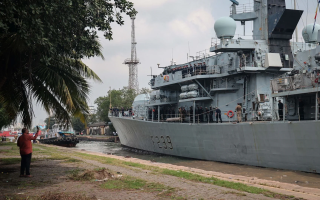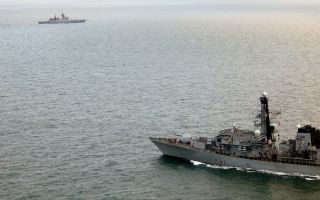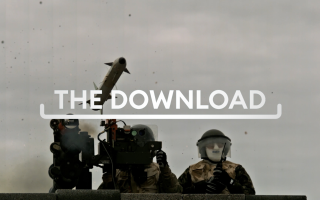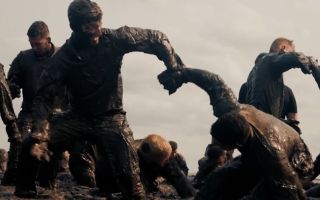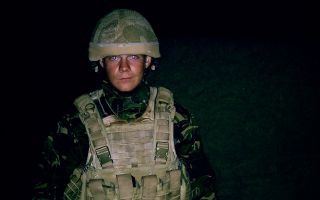Royal Marines School of Music Remembers IRA Bombing
Letters of condolence from President Bush and Margaret Thatcher sent to the Royal Marines in the wake of the IRA Deal bombing in 1989 – which killed 11 musicians – have gone on display in Portsmouth.
And a watch worn by one of the bandsmen injured in the blast, badly damaged but still showing the exact time the bomb went off, is also now on view.
The items were presented to the Royal Marines School of Music for display in its new Memorial Room to mark the 25th anniversary of the bombing.
The explosion at Deal barracks in Kent – then home to the school of music – took place on September 22 1989. As well as the 11 servicemen killed, 22 were seriously injured. The barracks and several nearby homes were extensively damaged.
In days following the blast, Prime Minister Margaret Thatcher and US President George H W Bush wrote letters to the Royal Marines Principal Director of Music, Lieutenant Colonel John Ware.
The letter from President Bush reads: “Please accept my condolences on the tragedy that the British Royal Marines suffered. The loss of such fine people in a brutal terrorist attacks is truly shocking.”
Mrs Thatcher wrote to Lt Col Ware after he accompanied her to visit the wounded in hospital. “It has been a devastating blow for everyone in the Royal Marines as well as for the people of Deal. I wanted to show on my visit that the whole country is intent on sharing your sorrow, but also in admiration for the courage and fortitude of the Royal Marines and their band which gives so much pleasure to so many people year after year,” she wrote.
Lt Col Ware has now chosen to present the letters to the school of music – which re-located to Portsmouth in 1996 - for permanent display in honour of those killed and injured.
And Terry Holland – now a civilian employee within the band service – took the opportunity to present his watch to go alongside the letters.
Lt Col Ware said: “Even after 25 years I get a tremble every time I read the letters. The bombing had a huge effect on the band service but what was memorable was the way everyone pulled together. It was the musicians’ idea – not mine – to parade through the streets of Deal a week after, with spaces left where the musicians killed would have stood. The band service was not going to be defeated.”
Mr Holland, who was in intensive care for two weeks after the blast, said: “I remember walking into the rest room where it was customary to all gather before starting our rehearsals at 8.30am. The bomb went off in the rest room and my watch still says 8.22am but to be honest I don’t recall anything else. It was only when I came out of intensive care that I realised what had happened and that I was lucky to be alive. Eleven of my friends were not so lucky.”

